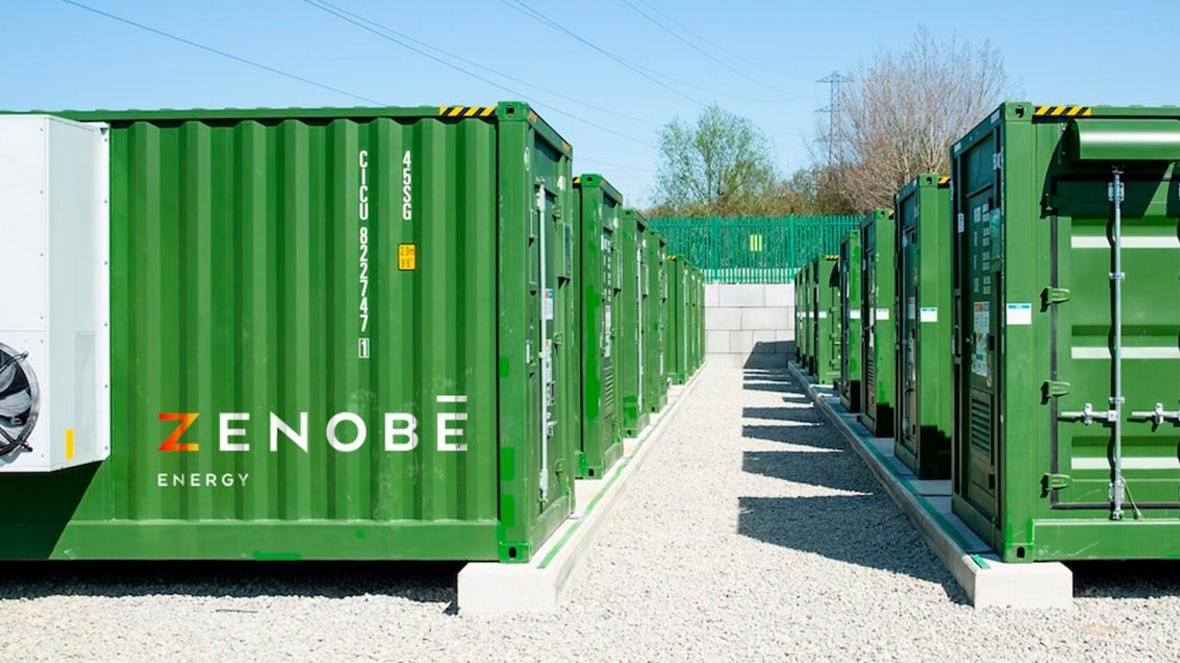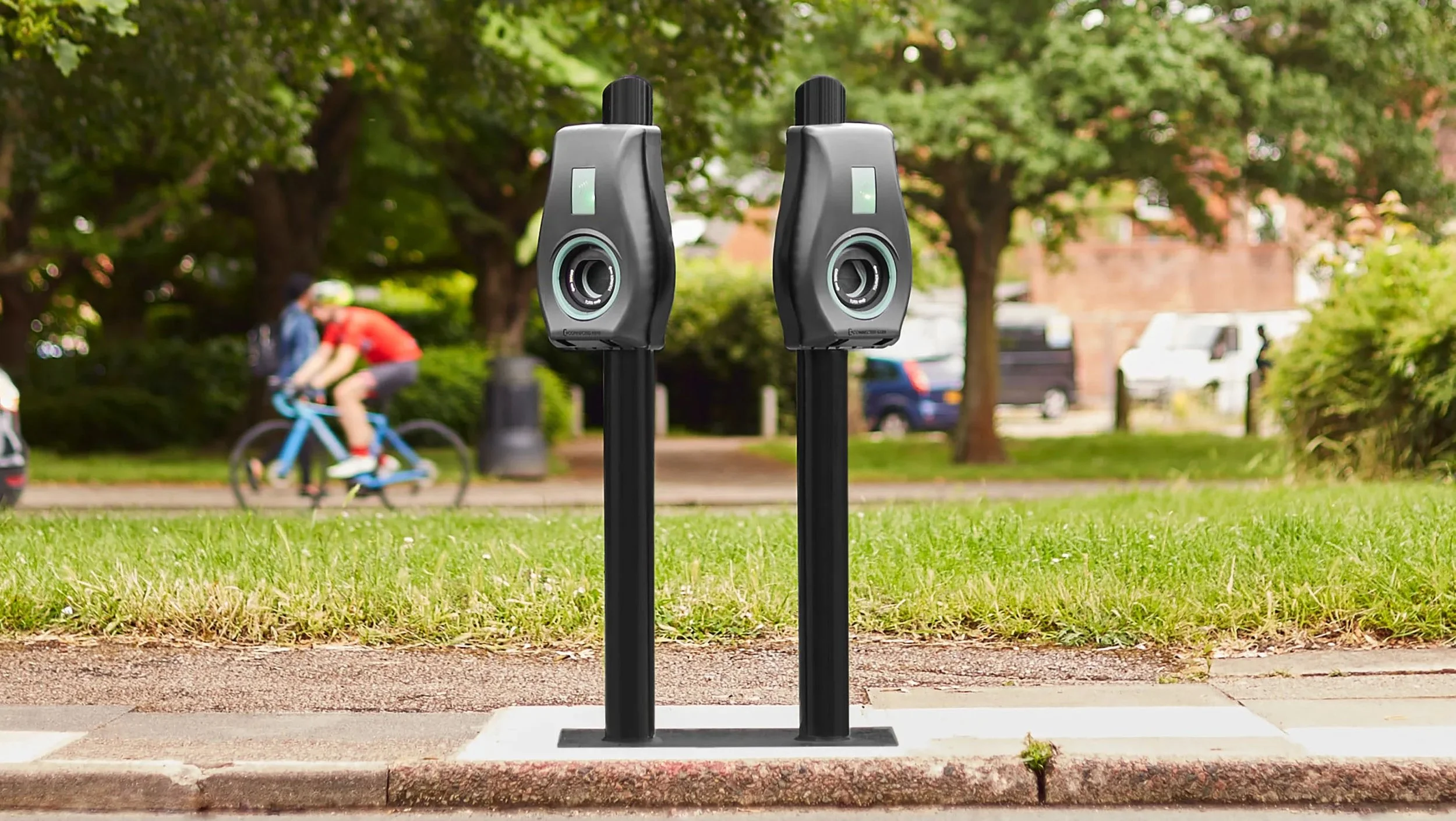
Country Guide
United Kingdom
Understand the UK’s tech ecosystem, better navigate public procurement and get insights into the most relevant climate and impact-focused VCs and startups.
Index
About
This guide series is for startups looking to expand into the UK market.
At Urban Impact, our mission is to map and connect the emerging climate and impact startup ecosystem in cities. To do that for the UK, we partnered up with the UK’s national smart city initiative, Connected Places Catapult, as well as Europe’s leading GovTech agency, PUBLIC.
We know that with the right knowledge and support, innovators like yourself can make a real difference in this world. We hope you enjoy the read!
Knowledge Partners
PUBLIC helps reimagine and build digitally-enabled public services.
Connected Places Catapult is the UK's innovation accelerator for cities, transport, and places.
Supported by
This guide is part of The Assembly project: a set of initiatives (from programs to guides) co-funded by the European Regional Development Fund, supported by Berlin and designed by Urban Impact, that equip startups and innovators with the tools to successfully scale in new markets around the topics of climate and impact in cities.
What topics does this guide cover?
Country overview.
The UK consists of four countries: Northern Ireland, Wales, Scotland, and England.
Each country has a unique industry focus within its regional ecosystem, from regenerative energies and low carbon transport to food tech. Important startup hubs outside of London are found in their largest cities including Edinburgh (Scotland), Manchester (England), Cardiff (Wales), and Belfast (Northern Ireland).
Urban tech startups are increasingly looking at opportunities in energy, construction, mobility, logistics, waste and water management, and GovTech in the UK.
Brexit aside, we see the UK as an attractive market for startups and scaleups. The UK’s tech ecosystem is supported in R&D by a great number of world-class universities, a skilled workforce, and government bodies like Innovate UK. Scaling startups can receive support through various tech communities, accelerator, and incubator programs.
To enter the UK market from abroad, you do not have to immediately register your company as a legal entity. Still, if you consider moving with your business to the UK, it is useful to apply for either a startup visa or an innovator visa.
The UK in numbers (2022):
Source: Dealroom
65,000+
Startups149
UnicornsStrongest funding in Europe
UK startups raised double the funding of any other European market.2,000+
VC Investors$31.2B
in VC funding 20223,251 VC investments
There were 1,311 VC deals across UK regions in 2022 compared to 1,940 deals in London.$3.3B Climate tech investments
UK climate tech startups raised the most funding in all of Europe (Source: Sifted)4.7M Jobs in digital economy
Tech jobs reached top spot for UK hiring from May 2021 to 2022, ahead of sectors like construction, teaching, and healthcare. The digital economy now accounts for 14% of the UK workforce. (Source: Tech Nation)Understanding how UK regions differ in urban tech focus and investment volume.
Ecoystem Partner
Connected Places Catapult
Connected Places Catapult is the UK’s innovation accelerator for cities, transport, and places. They connect businesses and public sector leaders to cutting-edge research. CPC helps develop, implement and commercialise the latest technology and innovation for existing markets, as well as create demand and grow new markets in the UK and globally.
The countries and regions in the UK have various industries in which they accelerate urban technologies. Connected Places Catapult has curated an overview of the focus areas in each of the regions as potential opportunities for startups.
We have listed the specialization in tech and the total investment into tech companies (in 2020) for each region.
Regional guides.
Get deeper insights on featured UK regions.
London
Discover the ins and outs of the UK’s capital as Europe’s leading startup hub.
Newcastle
From the first industrial revolution to today, Newcastle upon Tyne is reinventing itself.

‘In 2021, the UK became the fourth country in the world to pass 100 unicorns, after the US, China, and India. The UK has now more unicorns than Germany, France, and Sweden combined.’
Public Procurement
To understand how start-ups can benefit from public procurement in the UK, this section will focus on the government bodies’ procurement regulations as well as on how to best sell to the government.
The UK government and local authorities publish tenders and opportunities more publicly and transparently than other EU countries, but the publishing is less centrally organized and widely spread across multiple platforms. The national contract database Find a Tender Service (FTS) displays all tenders above £ 10,000 that are published by all local authorities as do the platforms Delta E-Sourcing and Bloom.
There are around 100 operating regional tender platforms like:
Insight
In 2021 and 2022 the UK invested £397 billion in gross spending on public sector procurement. From 2020 to 2021 the central government spent £71 million on SMEs.
For startups, there are around 408 local governments in the UK that are key players when selling a technology or service to a city or council.
Transport and healthcare are governed differently from other domains. 12 regional transport bodies manage a large part of regional procurement.
Transport for London
Transport for Greater Manchester
Transport for West Midlands
Midlands Connect
Peninsula Transport
Transport East
Transport for the North
Transport for the South East
Transport for the West of England
England's Economic Heartland
Transport for Wales (national body for devolved matters)
Transport for Scotland (national body for devolved matters)
Working with local authorities.
Compared to other local governments in Europe, local authorities in the UK operate under either a one-tier system (unitary authorities) or a two-tier system (county and district councils).
Knowing which tier system the targeted city or region is operating in will help to adapt the sales strategy for your business.
The upper-tier formed of the county councils covering 80% of the government services
The lower-tier formed by the district councils covering 20% of the government services but on a more local level (e.g. waste management)
Local governments are mostly responsible for the procurement and provision of services in the fields such as:
Transport and Mobility
Housing & Planning
Environmental Health
Waste Disposal and Collection
Social Care
Revenues
Taking a shortcut.
Framework agreements.
Frameworks and dynamic purchasing systems make it easier for local governments to procure, and if you want to succeed in the UK you need to know how to best navigate them.
Framework agreements are umbrella arrangements under which specific contracts can be awarded by a direct award or mini-competition. They allow authorities to directly award from a list of suppliers instead of drawing out a whole tender process. The procurement process results in a closed list of pre-approved suppliers.
Open vs Closed Framework Agreements
Both open and closed framework agreements may be awarded by direct award or mini-competition, but their maximum durations are different. Closed frameworks have a maximum duration of 4 years while open frameworks have a maximum of 8 years. Open frameworks are also required to re-open after three years to allow other suppliers to join and for existing ones to re-evaluate their prices. Learn more about UKs Dynamic Purchasing System Marketplace and sectors.
Spark
Always open for applications.
Within the platform, authorities run small competitions rather than directly awarding suppliers.
You can apply to sell:
Internet of Things (IoT)
Artificial Intelligence (AI) and Automation
Simulated and Enhanced environments
Engineering/Materials Science
Data
Wearables
Transport
Security
DOS
Applications open from October until November.
The public sector uses the Digital Marketplace to buy digital services. You can apply on the gigital marketplace to sell digital services through the Digital Outcomes and Specialists framework. Your business will run through a due diligence process and certification upfront as well.
You can apply to sell:
Digital outcomes, for example, a team to build a service
Digital specialists, for example, an individual developer or user researcher
User-research studios
User-research participants
G Cloud
Applications open from March until July.
The application process is kept comparably simple. Your business will run through a due diligence process, following a certification upfront. All suppliers of cloud services can apply to sell on the G-Cloud framework. You do not need to be based in the UK.
You can apply to sell:
Cloud hosting
Cloud software
Cloud support

“Any supplier who is not willing to give public services access to their data is not ready to work with the government.”
Eddie Copeland
London Office for Technology and Infrastructure (LOTI)
Lowering the bar.
Knowing tender thresholds.
The threshold for the central government in supply, services, and design contracts is £138,760 and for the rest of the government £213,477. Utilities (energy, waste, and water) have a threshold of £426,955. Contracts above these thresholds, which exclude VAT, must be procured via an open, compliant competition.
As the UK moves away from EU regulation these thresholds might change over time.
Contracts below the threshold only have a few legal rules, but authorities tend to have disparate internal approaches to below-threshold procurement:
What are tender thresholds?
Procurement Threshold means the published financial threshold applying to in-scope supplies, services and work contracts, and concession contracts as identified in the Public Procurement Legislation.
Central Government
< £10,000 - Direct Award
£10-45,000 - Three Quotes
> £ 45,000 - Competition
Local Government
> £15,000 - Direct Award
£15-60,000 - Three Quotes
> £ 60,000 - Competition
Wider Public Sector
< £45,000 - Direct Award
£45-60,000 - Three Quotes
> £ 60,000 - Competition
Tips on tendering from the experiences of 100+ startups.
Ecosystem Partner
Johnny Hugill
Head of Research, Public
Start with a need and a clear hook
Before approaching a local authority make sure you have done your research. What are their needs, public interests, or priorities? (see section: Regions) It is always good to learn about an authority and its goals and strategies to translate your approach into an effective message for them.
Avoid ‘cold’ bidding
Bidding for competitions “cold” has little success in the UK. Still, if you want to give it a go, make sure that your business model does at least target the core of the tender activity in order to stand a chance. A good rule of thumb is to only bid cold for things that are right in your sweet spot.
Get involved early
Look out for “Prior Information Notices” (PINs), in which contracting authorities may publish their intentions of a planned procurement in your industry. Get involved early and as much as you can in the engagement processes of competitions.
Build momentum through partnerships
When you are starting out, a great strategy is to leverage partnerships with existing strategic suppliers who have established relationships with local governments. This is particularly important if you have identified that your solution is a small point-solution in a much bigger joined-up service being delivered by a larger provider.
Focus on social and environmental value
ESG (environmental, social, and corporate governance) is becoming more and more important for authorities in competitions, which is why you should always consider the social and environmental value your company brings to the city or region. Bring this out as a key win-theme in your proposals and tenders and quantify benefits wherever possible.
Use frameworks as a route to market
Frameworks are really widely used for tech in the UK public sector. Getting onto frameworks can be challenging but can also be transformative for your sales prospects. In particular, they are extremely helpful for converting active business development into direct awards. Especially when approaching authorities for the first time, frameworks can accelerate the sales processes.
VC landscape.
Apart from the UK's usual suspects of the VC scene like Index Ventures, Balderton Capital, or Accel Partners, it can be useful for climate and impact startups to explore other firms that focus on the topics in their fields. We have created an ever growing list of climate and impact focused VCs below.
Climate and impact focused VCs in the UK.
Use the Airtable filters and sorting function to explore the table. Did we miss a VC? Suggest an addition here.
Top UK urban and climate tech startups:
Octopus Energy
Builds technology that reduces the cost of energy to improve customer experience.
London
Arrival
Manufacturer of electric delivery vans, buses, and passenger cars with outstanding design and climate impact focus.
London
Zenobe
Zenobe are on a mission to make clean power accessible through electric fleets, network infrastructure and second-life batteries.
London
OVO Energy
Launched in 2009 to make energy cheaper, greener, and simpler, offering 100% renewable electricity as standard.
Bristol
Connected Kerb
Connected Kerb accelerate the transition towards sustainable mobility with their electric vehicle charging solutions.
London
Carbon Clean
Carbon Clean have developed modular carbon capture systems for easy, affordable and scalable carbon capture.
London
Nyobolt
Nyobolt are tackling charge anxiety with their high-performance battery and charging technologies.
Cambridge
Newcleo
Developing next generation small modular nuclear reactors to generate safe, clean and sustainable energy for all.
London
The experts behind the guide.
This guide pairs insights from entrepreneurs not only familiar with fundraising and networking, but with the ins and outs of Europe’s regulatory landscape.
Sophie Persigehl
Sophie is a city planner and works as a project manager at Urban Impact Agency. Through her previous studies in urban planning and current research focus on urban futures, she sees city innovation ecosystems from a holistic perspective.
David Altabev
David is the Founder of Urban Frontiers, a boutique urban tech and digital transformation agency, and worked as Head of Cities at PUBLIC. He is an expert on digital city strategies, startup collaboration, and innovative public procurement in the UK and Europe.
Andrew Stevens
Andrew is the Head of Policy and Research at the Japan Local Government Centre in London. As an urbanist and researcher looking at city networks, he actively supports city-to-city cooperation and local ecosystem policy across Europe and Asia.
Related Guides:
London
Discover the ins and outs of the UK’s capital as Europe’s leading startup hub.
Newcastle
From the first industrial revolution to today, Newcastle upon Tyne is reinventing itself.













































